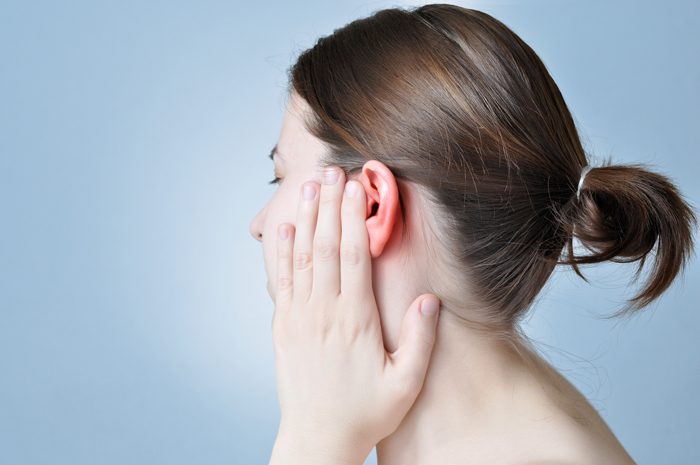Chronic Ear Infection Treatment in Kondapur, Hyderabad
Ear infections among both children and adults are very common. Although, when these ear infections cannot be treated or taken care of with the help of normal treatments, they can lead to chronic ear disease. Chronic ear disease can also occur when the ear infections keep recurring even after the treatment. Chronic ear disease is an ear infection that cannot be healed. Generally, in this case, the space behind the eardrum is affected.

What are the Types of Chronic Ear Disease that can take place?
There can be the following main types of chronic ear diseases:
- Acute otitis media (AOM) - It is the most common type of ear infection. The fluid gets collected behind the eardrum that causes pain in the ear.
- Otitis media with effusion (OME) – this type usually affects children. When the fluid remains trapped in the middle ear after an infection in the ear has already been resolved, this type of ear disease may take place. A child may not show any symptoms, but a doctor can find these signs of fluid behind their eardrum.
- Chronic otitis media with effusion (COME) – this is the condition wherein the fluid stays in the ear for an extended period or keeps coming back.
- Otitis media (CSOM) - People with CSOM show recurring and persistent ear discharge.
What are the causes of Chronic Ear Disease?
Chronic ear disease develops over a long period due to recurring ear infections. If the minor ear infection is treated and healed timely, it can help prevent the occurrence of chronic ear disease. The cause of chronic ear disease can be:
- Clogged Eustachian tube
- Fluid build-up in the middle ear
- Bacterial infection
- Common cold
- Flu
Request an appointment at Apollo Spectra Hospitals, Kondapur
Call 1860-500-2244 to book an appointment
What are the Symptoms of Chronic Ear Disease?
The symptoms may differ in different people depending on the type and cause of the underlying issue. Some of the common symptoms are:
- Piercing pain in the ear
- Pressure build-up in the ear
- Low fever
- Dizziness
- Trouble sleeping
- Hearing loss
- Fluid ear drainage
- Pulling or tugging at the ear
What are the Tips to Prevent Chronic Ear Disease?
Some tips to prevent an ear infection to turn into a chronic ear disease are:
- Consult the doctor for proper treatment in case of an acute ear infection to prevent it from aggravating the situation.
- Stay up to date with various vaccines. Consult the doctor for a proper vaccine schedule.
- Quit smoking.
- Maintain personal hygiene.
How can Chronic Ear Disease be Treated?
There are various treatments for chronic ear disease at Apollo Kondapur, such as:
- Dry mopping
To speed up the recovery, the doctor clears and cleans the ear of wax and discharge. It helps keep the ear free of debris and discharge.
- Over-the-counter medication
Over-the-counter medication such as acetaminophen or non-steroidal anti-inflammatories (NSAIDs) can be taken. Although, giving aspirin to children should be avoided.
- Antifungal treatments
Antifungal ear drops or ointments can be prescribed in case of fungal infection as a symptom of the chronic disease.
- An ear-trap
This process of treatment involves the removal of fluid from behind the eardrum to test the fluid for identifying the cause of the ear disease. It is also known as tympanocentesis.
- Surgical procedure
If the ear does not respond to any other treatment and shows reoccurrence, the doctor might perform a surgical procedure wherein he would insert a pressure equalization (PE) tube into the eardrum, which would allow the fluid to move out of the middle ear and relieves pressure in the eardrum.
When the inner ear is damaged, it generally would showcase symptoms such as dizziness, loss of balance, ringing in the ear, nausea, or vomiting.
Yes, a mild hearing loss has showcased an effect wherein understanding and processing have been affected and is linked to a decline in cognitive behaviour.
If the eustachian tube is blocked, it will showcase symptoms like ears feeling plugged or full, muffled sounds, a popping or clicking sensation in the ear, pain in one or both ears, or ringing in the ears.
Symptoms
Our Doctors
DR. DASARI PRASADA RAO
MBBS,MS,M.Ch...
| Experience | : | 49 Yeras Experience |
|---|---|---|
| Speciality | : | Interventional and C... | Location | : | Ameerpet |
| Timings | : | Mon - Sat : 9:00 AM ... |
DR. MOHAMMED NASEERUDDIN
MBBS, MS (ENT)...
| Experience | : | 8 Yeras Experience |
|---|---|---|
| Speciality | : | ENT, Head and Neck S... | Location | : | Kondapur |
| Timings | : | Mon - Sat : 11:00AM... |
DR. PUROHITHI P
MBBS, MD, IDRA, FIPM...
| Experience | : | 4 Yeras Experience |
|---|---|---|
| Speciality | : | Sr. Interventional P... | Location | : | Kondapur |
| Timings | : | Mon - Sat : 5:00 PM ... |
DR. CHINNAYA PARIMI
MBBS, FACS (Fellow, ...
| Experience | : | 19 Yeras Experience |
|---|---|---|
| Speciality | : | General Surgery & Ga... | Location | : | Kondapur |
| Timings | : | Mon - Sat: 9:30 AM t... |
Our Top Specialities
NOTICE BOARD
CONTACT US
CONTACT US
 Book Appointment
Book Appointment






.svg)
.svg)
.svg)
.svg)








